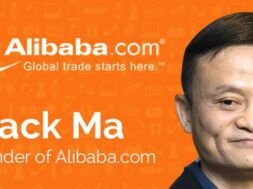
China: In a historic overhaul, Jack Ma’s Alibaba splits into six units
Virendra Pandit
New Delhi: When Jack Ma, the multibillionaire and the second-best-known Chinese worldwide after President Xi Jinping, was spotted in a recent photograph after a long time, market watchers, who study such rare Chinese symbolism, concluded something fresh was up at his Alibaba Group.
Within days, Ma’s Alibaba Group announced its new plans: in a historic overhaul, it will split up into six units that will plan their own IPOs.
In November 2020, China canceled Alibaba’s proposed USD 34 billion IPO, the world’s largest, hours before it went public, in what was viewed as the Communist government’s show as to who ran China. Soon after that, Jack Ma virtually disappeared from the public domain.
Alibaba’s Tuesday announcement coincided with its founder Jack Ma’s return to China after more than a year abroad.
This move will free up Alibaba’s main divisions from e-commerce and media to the cloud to operate with far more autonomy, laying the foundation for future spinoffs and market debuts, the media reported on Tuesday.
Now, Alibaba Group Holding Ltd, which is China’s online commerce leader, is splitting its USD 220 billion empires into six units that will individually raise funds and explore IPOs, a historic decision since its inception 24 years ago.
The market’s response said it all: Alibaba’s shares climbed 8 percent in pre-market trading in New York.
For major Chinese technology firms, this shift to a holding company structure is rare and could force others to follow suit as Communist-run China is unwilling to allow a parallel power center, even if it is a business conglomerate, and would take every step to ‘decentralize’ it.
This had become clear in 2020 when the government criticized the exponential influence of online platforms, like Alibaba and WeChat operator Tencent Holdings Ltd. When Jack Ma criticized Chinese banking rules, the government cracked down to clip his wings and canceled his IPO.
The fresh Chinese move on Alibaba means the government regulators would now ‘support’ the restructuring of corporations to avoid monopolistic concentration of power in the technology sector, and also to encourage innovation, which has stagnated. Alibaba and Tencent invested in hundreds of startups over the years, often helping to craft strategy as they grew.
Now, Alibaba seems ready to tap investors and public markets again, after the Chinese government’s clampdown on internet spheres wiped out over USD 500 billion of its value since late 2020.
In 2010, Alibaba successfully hived off Alipay, which led to the creation of Ant Group Co. It was on the verge of pulling off the world’s largest IPO before Beijing pulled the plug. It could now consider a second run at the market.
But now Alibaba is getting tough competition from arch-rival JD.com Inc. and others.














